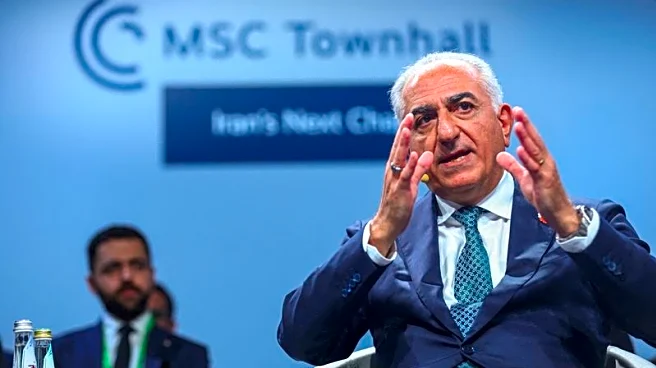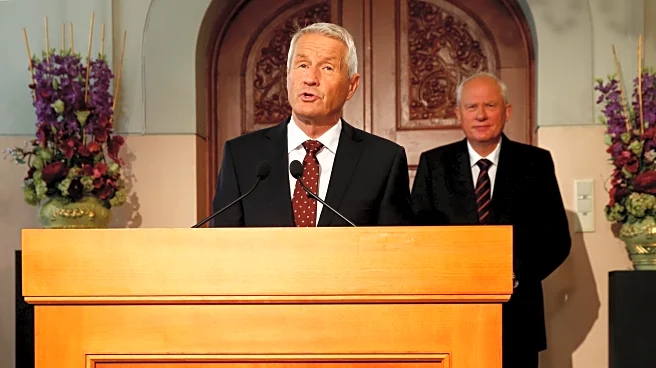Rapid Read • 8 min read
Intel has agreed to sell a 10% stake to the United States following pressure from President Trump, who demanded the resignation of Intel CEO Lip-Bu Tan. This decision has raised concerns among investors about the precedent it sets for government involvement in private companies. James McRitchie, a shareholder activist, expressed worry over the implications of such government control, suggesting it blurs the lines between public and private sectors. The deal involves converting $11.1 billion in CHIPS funding into equity, a move praised by some for allowing the US to profit from grants awarded under the Biden administration. However, the lack of regulations to prevent potential abuses like insider trading remains a concern.
AD
The agreement between Intel and the US government highlights the growing influence of federal policies on private sector operations. This move could signal a shift in how government interacts with major corporations, potentially leading to increased scrutiny and regulatory measures. While some view the deal as a strategic use of public funds, others fear it could lead to unchecked government influence over business decisions. The implications for investors are significant, as they must navigate the potential risks associated with government stakes in private companies, which could affect market dynamics and shareholder value.
The deal may prompt discussions on the need for regulations to limit government influence in corporate affairs, particularly concerning insider trading and other potential abuses. Stakeholders, including investors and policymakers, will likely debate the long-term impact of such government involvement in private enterprises. The response from the business community and political leaders could shape future policies regarding government stakes in companies, influencing how similar situations are handled moving forward.
This development raises ethical questions about the balance of power between government and private sectors. It could lead to a reevaluation of corporate governance practices and the role of government in business operations. The long-term effects might include shifts in investor confidence and changes in how companies approach government relations, potentially altering the landscape of corporate America.
AD
More Stories You Might Enjoy












